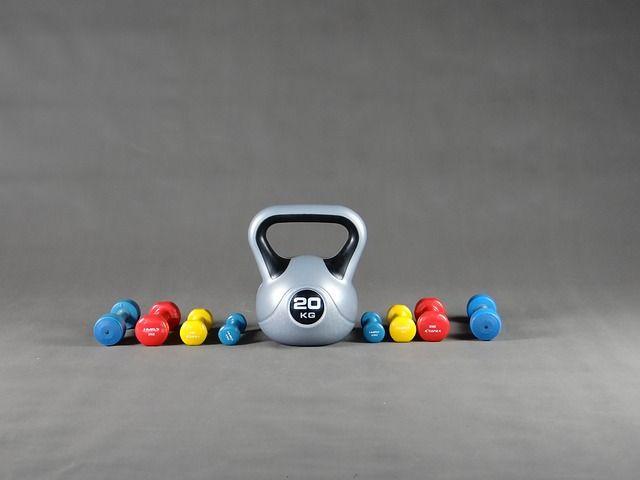Obesity also impacts both profits and productivity. A 2017 review of 50 studies on the subject in the medical journal BMJ Open revealed “substantial costs due to lost productivity among workers with obesity.” It’s no wonder companies want to help employees stay healthy by offering employee perks like gym memberships or on-site gyms. However, these don’t always offer enough incentive for employees to focus on weight loss or health.
One idea is to offer a workplace weight loss competition. Employees in any department, both local and remote, can compete to see who can lose the most weight. Before starting, check with a professional or nutritionist to make sure you like the concept. Employees may also want to get cleared by their doctor beforehand.
You can organize a fitness challenge through a company that specializes in this. One called HealthyWage partners with you to guide team members through competitions. Another, Called DietBet, lets you join competitions involving thousands of players from other companies.
You can create your own fitness weight loss comepitition too. Here’s how:
Identify weight loss interest and ideas.
I don’t have personal experience running one of these competitions, but I have participated in one at a startup where I worked. The first, perhaps most effective thing leaders did was canvas the team to determine interest among workers. They wanted to know what types of voluntary competitions we wanted to participate in — individual or team.
While you might have some general ideas about the length of time of the competition, as well as financial prizes, getting this type of buy-in before starting the competition shows you want people get the greatest results.
We selected the team format and were also allowed to decide whether we wanted to exercise together, separately, or a combination. This added to the feeling of personalization, empowerment, and support.
Have a gatekeeper.
Have someone lead the competition to keep the process on track, provide regular updates on performance, and share final results. This gatekeeper serves as the point of contact for questions or concerns. It’s also important that someone is in place to ensure competitors follow the rules. They can also encourage and rally the troops to push through until the end.
In our case, our startup brought in a certified personal trainer from a local gym that many of us attended. The trainer was certified to provide nutritional advice and adept at tracking weight, BMI, and other metrics.
Pick weight loss parameters.
This is a competition, so it’s especially important to establish guidelines. Decide how long the competition will run, accounting for specific projects and work tasks that could interfere with the competition.
Figure out when you want to hold the competition. For example, it may not be the best idea to start a weight loss program in the middle of summer when people go on vacation or in the weeks leading up to the winter holidays. However, it might be good to kick it off in January when people are passionate about their resolutions.
Determine how often competitors weigh in, as well as what tools they can use to verify weight loss. Also, decide prize size and quantity.
Leverage the competition for motivation and awareness.
The gatekeeper can work with others in the company to create individual or team profiles that include before and after pictures, results, and summaries of what each person thought about the experience. We made this part optional because not everyone felt comfortable sharing their experience. However, many did so well with their weight loss targets that they didn’t mind posting pictures for the rest of the company to see.
By taking the weight loss journey, many may report new levels of energy, better sleep, and other benefits. By sharing this experience with the rest of the company, participants can inspire others to do the same. It may be hard for non-participants to imagine what is possible. Although there is no guarantee of success, testimonials from the competition — even those that didn’t lose the most weight — provide a positive message for others.
Maintain the momentum.
Before the first competition ends, build on the interest by announcing further weight loss competitions. Getting people to sign up while they are still participating, or while others are watching the process, is a way to show that your company is fully vested in employee health and wellness.
Your concern about their welfare and the proactive approach you take with employee health will not go unnoticed. Championing your team’s well-being will help to attract and retain talent while increasing their quality of life.
Thanks for reading! My work is almost entirely reader-funded so if you enjoyed this piece please consider sharing it around, liking me on Facebook, following me on Twitter, and maybe throwing some money into my hat on Patreon, Paypal, or with Etherium:. 0X24AC7A8FF92721B9827A03A6936F




